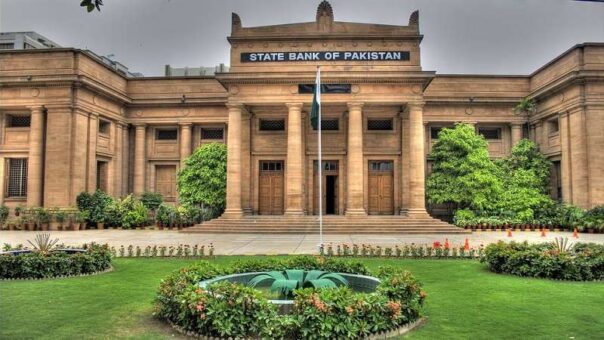Karachi, October 23, 2023 – The State Bank of Pakistan (SBP) has introduced a significant initiative to support the growing community of freelancers in the country by launching the Exporters’ Special Foreign Currency Account (ESFCA).
This move aims to streamline the process of retaining foreign exchange earnings for freelancers, providing a more efficient and accessible platform for them.
In a circular issued on Monday, the central bank outlined the key features and requirements of the Exporters’ Special Foreign Currency Account. Under this framework, freelancers in Pakistan will be able to open ESFCA accounts concurrently with their primary PKR accounts. This can be done either in-person or remotely through digital means, making it more convenient for freelancers to access these services.
The new framework also brings clarity to existing Freelancer Digital Accounts (FDA). These accounts will now be considered as part of the ESFCA framework, simplifying the transition for freelancers. The circular advised banks to facilitate the onboarding of prospective freelancers under the attached framework.
To be eligible for the ESFCA, individuals must be residents of Pakistan engaged in providing digital or online services, including IT and IT-related services, for which they receive payments from outside Pakistan. The onboarding process can be done through in-person visits or remotely through digital channels.
Key information required at the time of account opening includes the individual’s CNIC/ NICOP/ POC number, date of issuance of the identity document, full name, father or spouse’s name, date of birth, place of birth, mother’s maiden name, phone number, email address, and postal address. In cases involving minors, the account will be opened with a guardian, and additional information about the guardian will be collected.
The account opening process also involves certain declarations and consents, including confirming that the source of funds is related to freelance activities and agreeing to the Foreign Account Tax Compliance Act (FATCA) and Common Reporting Standard (CRS) requirements, if necessary. Customers are also required to accept the terms and conditions of the account and consent to the use of their information for due diligence and supervisory purposes.
Documents needed for account opening include a scanned or copied version of the original ID card (CNIC/ NICOP/ POC) or proof of NADRA verification. In the case of digital onboarding, a live photo of the customer and a signature (whether wet, digital, or electronic) are also required.
The banks are responsible for conducting due diligence, which involves biometric verification of the customer, including a liveness check through NADRA. They will also screen prospective customers against sanctions regimes to ensure services are not provided to prohibited individuals.
In cases of digital onboarding, additional verification is carried out to confirm the applicant’s identity, such as verifying contact details through a one-time password sent via email or mobile, or through callback. In cases where biometric verification is not possible, other customer particulars obtained through NADRA Verisys can be used for verification.
Once the requirements are met, two accounts will be opened simultaneously for the customer: the Exporters’ Special Foreign Currency Account (ESFCA) as defined in the Foreign Exchange Manual, and a primary PKR account. Importantly, these accounts can be opened with zero balances, and there is no maximum limit on the balance.
The maximum turnaround time for a decision to open, activate, or decline an account is two working days from the time all required documents and information have been submitted and verified. In cases of decline, the reasons should be recorded and communicated to the applicant in writing, preferably through digital means.
The ESFCA is designed for foreign currency retention, and therefore, cash withdrawals will only be allowed in PKR. However, debit card holders will have the option to withdraw cash outside Pakistan.
To ensure ongoing compliance with regulations and to manage risks, banks may seek additional information from customers based on their internal risk assessment and compliance framework. Periodical re-profiling of customers will also be carried out in accordance with the bank’s risk management framework, taking into account turnover in the account.
The introduction of the Exporters’ Special Foreign Currency Account is a positive step towards supporting freelancers in Pakistan, streamlining the process of retaining foreign earnings and enhancing transparency in financial transactions within this growing sector. Freelancers and the broader business community are expected to benefit from this new initiative.
